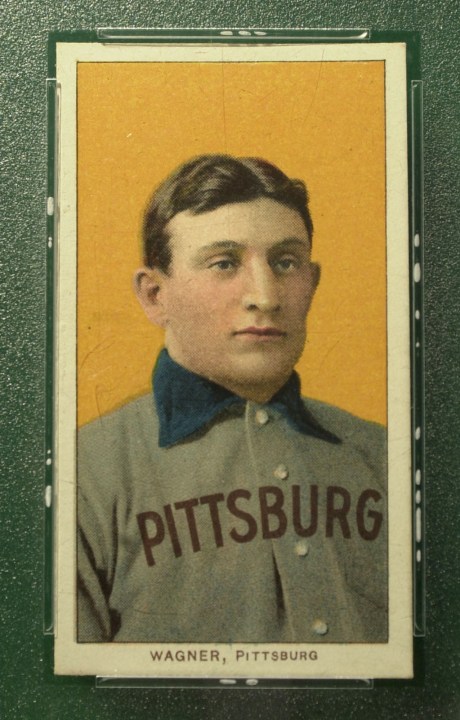(NEXSTAR) – During the pandemic, many found themselves with time to return to hobbies they may have lost before. Others found themselves with extra change in their pockets thanks to the stimulus checks.
While some took that time and money to the housing market, others took it to a different, equally hot market – the trading card market. In some cases, the market was so hot and the desire so great that retailers like Target had to restrict access to its trading card department.
During the first half of 2021 alone, eBay reports $2 billion in trading cards transactions occurred on its site, with an average of one sports trading card being purchased every second.
“In the last three years, our industry has really exploded. A lot more people have come into the sports collecting industry,” Mike Provenzale, a production manager with Heritage Auctions tells Nexstar.
For those who already found themselves with sports trading cards in hand, you may be wondering, now what?
What to look for
First, it’s important to note the authenticity of the item. While there are thousands of cards that have been printed, many are actually reprints, which have no value.

Provenzale points to the most famous card in the industry – the T206 Honus Wagner card, of which there are only believed to be 60 believed in existence. One recently sold for more than $6.6 million, becoming the most expensive trading card ever.
Several decades after the original card was printed, a company did a reprint. While the front of both cards look nearly identical, on the reverse of the reprint is the story of the legacy behind the T206 card. Provenzale says it’s pretty common for collectors to believe they have an original T206 when really it’s a reprint.
Besides authenticity, the grade of the card can impact its value. The condition makes up about half of the grade – that includes the card being cut perfectly centered, whether the corners are sharp, and if there are any other defects to the card. The smallest error or damage to the card can have a big impact on its grade.
Cards are graded on a 10-point scale, ranging from Gem Mint to Poor. Under the PSA grading scale, a common one in the industry, a Gem Mint 10-point card has perfect corners, no staining, and a perfectly centered image. Just one minor flaw – like a slight wax stain on the back or discoloring of the borders – drops the card to a Mint 9.
Dropping an entire point, “exponentially affects the value” of the card, Provenzale explains.
What is – and isn’t – valuable
A commonality among sports fans – having things autographed – can impact the value of your card or memorabilia, and not always in the best way.
“Basically every time an athlete signs their name, they’re devaluing their autograph, because now there’s more of the autographs out there of larger supply,” Provenzale said. “And in the last 30 years, a lot of players, retired and active, have done multiple autograph shows where every weekend they’ll go out and sign thousands upon thousands of autographs. So people get an autograph from even a Hall of Fame player who’s still alive and they think it’s worth thousands of dollars but rarity is a big factor in any collectible.”
While a lack of rarity has often brought down the value of trading cards, especially those released during a time of mass production in the 1980s and 90s, the tides are changing, according to Provenzale.
As more people have come into the industry, they’ve been searching for cards from their youth, largely the 80s and 90s. Cards from that time period, sometimes referred to as the ‘Junk Wax Era,’ were “essentially worthless,” until recently.
If you do come across a card you think may be valuable, you’ll want to keep it as safe as possible, Provenzale said. “If you think you have something of value, you should treat it as such until you know for sure it is or isn’t.”
What next?
Overall, Provenzale says the prices for the industry are very high now. Items like game tickets, programs, magazines, and original photos have even become popular over the last few years.
A ticket for a 1969 game between the New York Mets and Montreal Expos – when Hall of Famer Nolan Ryan made his first save – had a bid of $1,125 on eBay as of Tuesday evening. One of the seven known ticket stubs from Jackie Robinson’s major league debut in 1947 was recently sold for $480,000 through Heritage Auctions.
Regardless of what you have – from a T206 Honus Wagner to a ticket stub – do your research to find its value. Experts at your local card shop or sports memorabilia store can help appraise your item, as can those with auction houses like Heritage Auctions.
Be wary of where you’re selling, though. Some shops may offer you less than what the card is worth in order to make a profit on it. Other outlets, like auction houses, where the percentage they keep is based on how much your card or item sells for. Online retailers like eBay, which has its own service to prove authenticity, will work in the same fashion.

